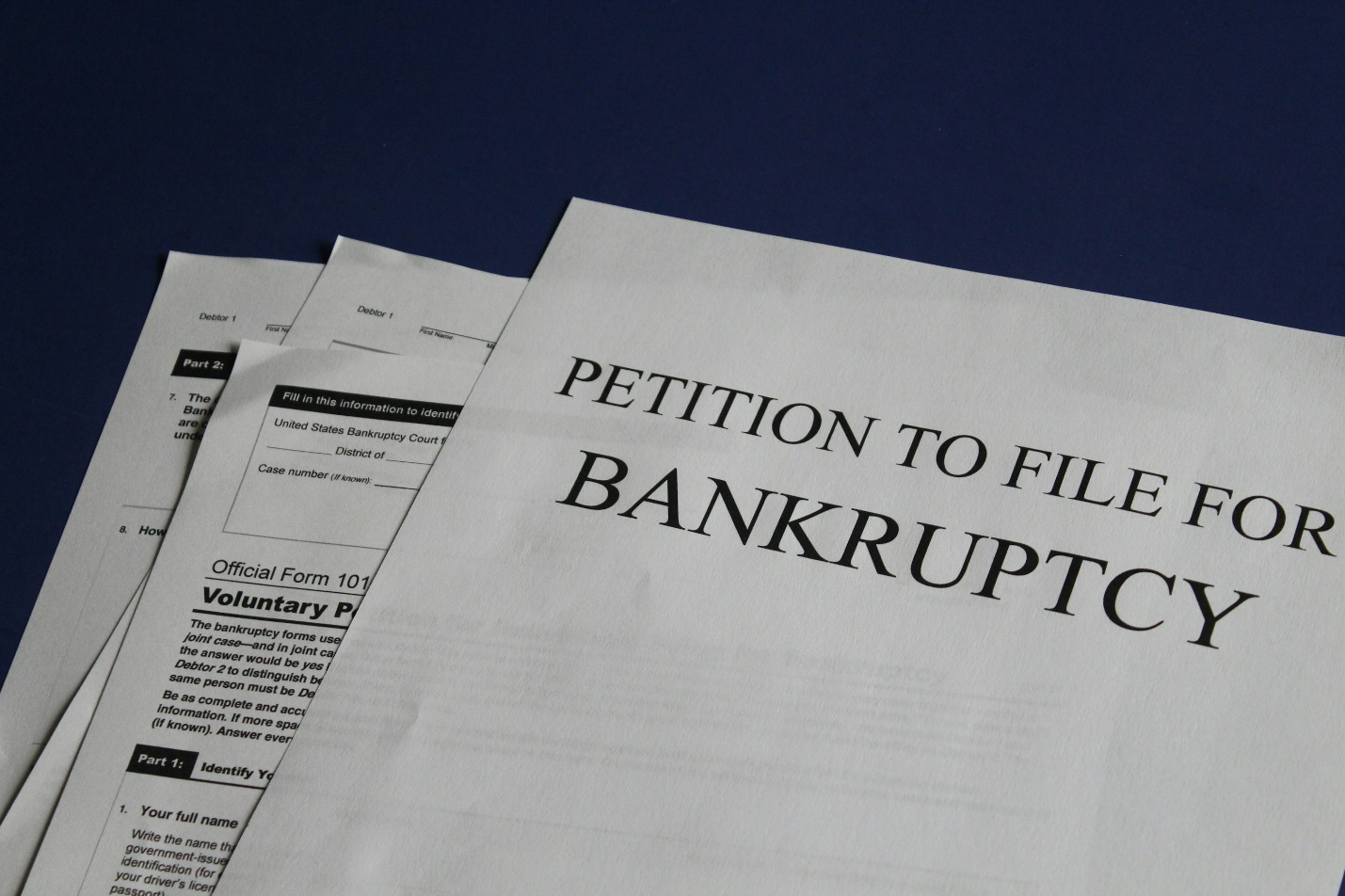Financial difficulties can feel overwhelming, especially when debt collectors are constantly calling, medical bills are piling up, and you see no clear path forward. If you’re a resident of Texas facing such challenges, Chapter 13 bankruptcy may offer a structured way out. This blog will explain the process, benefits, eligibility requirements, and consequences of filing for Chapter 13 bankruptcy in Texas while emphasizing the critical role of hiring a bankruptcy lawyer to navigate the complexities.
What is Chapter 13 Bankruptcy?

Chapter 13 bankruptcy, is a type of plan that is designed especially for nominal wage earners, allowing them to repay all or portion of their debt. Under this chapter, debtors propose a repayment schedule, which allows them to compensate for their leftover mortgage payments, pay down medical bills, and restructure other debts. Unlike Chapter 7, which liquidates assets to pay creditors, Chapter 13 is designed to help debtors retain their assets while providing medical bill collections for debt relief and other financial obligations.
Benefits of Chapter 13 Bankruptcy in Texas

1. Structured Repayment schedule
One of the primary benefits of Chapter 13 is the ability to create a structured repayment schedule  that fits your financial situation. Rather than being forced to sell off assets, you can make monthly payments over three to five years based on your disposable income. This plan ensures that creditors are paid while giving you breathing room to manage other financial obligations, such as mortgage payments or car loans. With the help of a bankruptcy lawyer, you can craft a plan that ensures you meet court requirements while maintaining your essential property.
2. Medical Bill Collections for Debt Relief
Medical debt is one of the leading causes of financial distress in the United States. Unexpected medical expenses can leave you drowning in debt, often with little recourse. Chapter 13 bankruptcy provides a clear solution to handling medical bill collections for debt relief by allowing you to consolidate and reorganize these debts into a single repayment schedule . This can significantly reduce the burden of overwhelming medical bills while giving you a feasible way to manage the costs over time. By hiring a bankruptcy lawyer in Corpus Christi, you can rets easy knowing your medical debts are properly accounted for in your debt-repayment schedule
3. Protection from Foreclosure and Repossession
If you’re behind on mortgage or car payments, Chapter 13 bankruptcy allows you to catch up through your repayment schedule . This option is particularly beneficial for individuals facing foreclosure or repossession of vital assets like their homes or vehicles. Filing for Chapter 13 immediately halts foreclosure proceedings and prevents repossession while you work through your repayment schedule. By consulting with a bankruptcy lawyer, you can develop a plan that enables you to keep your home and car while reorganizing your debts.
4. Stop Debt Collection Harassment

Constant phone calls, letters, and legal actions from creditors can make an already stressful financial situation even worse. One of the most immediate benefits of filing for Chapter 13 bankruptcy is the automatic stay that halts all collection efforts. This means you can stop debt collection harassment instantly, providing peace of mind and allowing you to focus on reorganizing your financial life. Once your bankruptcy case is filed, creditors must cease all contact with you, including wage garnishments and lawsuits. A bankruptcy lawyer in Corpus Christi can ensure that this protection is enforced, preventing creditors from attempting to violate the automatic stay.
5. Discharge of Certain Debts
While Chapter 13 involves repayment, some debts may be partially or fully discharged at the end of your repayment period. This is particularly beneficial for unsecured debts such as credit card bills and medical expenses. By following through with your repayment schedule , you may be able to reduce or eliminate some of your financial burdens. A debt relief law firm in TX can help you understand which debts are dischargeable and ensure that you take full advantage of the legal relief available to you.
6. Retain Ownership of Property
Unlike Chapter 7 bankruptcy, where non-exempt assets can be sold to pay creditors, Chapter 13 allows you to retain ownership of most, if not all, of your property. This is especially important if you have assets like a family home or car that you rely on for daily living. With the guidance of a bankruptcy lawyer, you can create a repayment schedule  that satisfies your creditors while protecting your property.
7. Lower Interest Rates and Fees
Filing for Chapter 13 bankruptcy can help reduce the interest rates and penalties on your outstanding debts. Through the repayment schedule , high-interest debts can be renegotiated, leading to more favorable terms that make it easier for you to repay what you owe. For individuals dealing with high-interest credit card debt or medical bills, this is a significant benefit that can make repayment more manageable. A bankruptcy lawyer in Corpus Christi can assist you in negotiating these reduced rates as part of your Chapter 13 filing.
8. Improved Credit Over Time
While filing for bankruptcy does impact your credit score, Chapter 13 provides a path to rebuilding your credit over time. Because you are repaying your debts through a structured plan, this demonstrates to future creditors that you are taking steps to address your financial situation responsibly. By completing the repayment schedule , you can begin rebuilding your credit sooner than if you let your debts spiral out of control. A bankruptcy lawyer can offer guidance on how to improve your credit post-bankruptcy.
Eligibility Requirements for Chapter 13 Bankruptcy in Texas

Filing for Chapter 13 bankruptcy requires meeting certain conditions:
- Regular Income: To qualify for Chapter 13, you must have a steady source of income, as the repayment schedule  is based on your ability to make consistent payments over three to five years. This income can come from wages, self-employment, retirement benefits, or even unemployment compensation in certain cases.
- Debt Limits: As of current guidelines, you cannot have more than $1,395,875 in secured debt (e.g., mortgages, and car loans) and $465,275 in unsecured debt (e.g., credit cards, and medical bills). These limits are periodically adjusted, so it’s important to confirm current figures with a bankruptcy attorney.
- Filing in Good Faith: The court requires that you file your Chapter 13 bankruptcy petition in good faith. This means that you must be genuinely seeking relief from debt and are not attempting to abuse the bankruptcy system. Your repayment schedule  must also be reasonable and fair to your creditors.
- Tax Filings: You must have filed all required tax returns for the four years preceding your bankruptcy filing. If not, the court may delay or deny your bankruptcy case.
Meeting these eligibility requirements is critical to ensuring your Chapter 13 case is approved, allowing you to reorganize and repay your debts under a structured plan. Consulting with a bankruptcy lawyer in Texas will ensure you fully understand and meet these conditions.
The Chapter 13 Repayment schedule

Your repayment schedule  is the heart of your Chapter 13 bankruptcy case. When you file, your bankruptcy lawyer will submit a proposal detailing how much and how often you will pay your creditors.
Key Components of the Repayment schedule
- Income-Based Payments: The amount you pay each month depends on your disposable income after necessary living expenses. Your repayment schedule  is designed to fit within your budget, allowing you to make manageable payments over time.
- Debt Categories: Debts in Chapter 13 are divided into three categories—priority debts (such as taxes and child support), secured debts (like mortgages and car loans), and unsecured debts(such as credit cards and medical bills). Priority debts must be paid in full, while secured debts can be reorganized to prevent foreclosure or repossession. Unsecured debts may be partially repaid or discharged, depending on the repayment schedule .
- Plan Length: Depending on your income level, the repayment period is typically three to five years. Those with lower incomes may opt for a three-year plan, while those with higher disposable incomes are required to repay over five years.
- Automatic Stay: One of the immediate benefits of filing Chapter 13 is the automatic stay, which stops creditor actions, such as wage garnishment and foreclosure. This allows you to focus on repaying your debts without fear of losing your home or other assets.
Once the plan is submitted, creditors have the opportunity to review and contest it. If the court approves the plan, you will start making payments to the bankruptcy trustee, who will distribute the funds to your creditors according to the plan’s terms. Typically, repayment schedule s last between three and five years.
Potential Consequences of Filing for Chapter 13

While Chapter 13 offers significant benefits, it’s not without its drawbacks. Here are a few important considerations to keep in mind as highlighted by a bankruptcy lawyer in Corpus Christi:
- Credit Impact: Filing for Chapter 13 bankruptcy will affect your credit score. However, for many, the impact is less severe than that of Chapter 7. A Chapter 13 bankruptcy stays on your credit reportfor seven years from the filing date, but with consistent payments, you can begin rebuilding your credit over time.
- Commitment: The repayment period can feel long, requiring discipline and careful financial planning over several years.
- Income Changes: If your income decreases significantly during the repayment schedule , it may become challenging to meet your obligations. Fortunately, there are mechanisms to adjust your plan or even convert it to Chapter 7 if needed.
Why You Need a Bankruptcy Lawyer

Navigating the Chapter 13 process can be complex and intimidating. Hiring a bankruptcy lawyer in Corpus Christi is crucial to ensure the process goes smoothly. A qualified bankruptcy lawyer can help you:
- Evaluate Your Options: A lawyer can assess your financial situation to determine whether Chapter 13 is the right choice for you. They may even suggest alternatives such as debt negotiationor filing for Chapter 7 bankruptcy instead.
- Guide You Through the Paperwork: Bankruptcy involves a significant amount of paperwork, from filing the initial petition to submitting detailed financial records. A lawyer will ensure that all paperwork is completed accurately and submitted on time.
- Create a Repayment schedule : A bankruptcy lawyerwill help you craft a repayment schedule  that complies with court requirements and fits your financial situation, giving you the best chance of approval.
- Stop Debt Collection Harassment: Filing for Chapter 13 should immediately stop all collection activities. However, some creditors may try to push the boundaries. Having a bankruptcy lawyeron your side ensures that your rights are protected and that any attempts at harassment are dealt with swiftly.
- Court Representation: Your lawyer will represent you in court hearings, providing experienced advocacy when presenting your repayment schedule  to the bankruptcy judge.
Why Expertise Matters
Filing for bankruptcy is a legal process that has long-term financial consequences. A misstep or misunderstanding can result in your case being dismissed, or worse, losing the protection of the bankruptcy court. The expertise of a seasoned bankruptcy lawyer in Corpus Christi ensures that every step of the process is handled with care, from the initial consultation to the final discharge of your debts. They will help you avoid costly mistakes, and in many cases, their knowledge of local bankruptcy judges and trustees can work in your favor.
Experienced & Efficient – Law Office of Joe Gonzalez
If you’re considering filing for Chapter 13 bankruptcy in Texas, the Law Office of Joe Gonzalez can provide the experienced guidance you need. With a deep understanding of Texas bankruptcy laws and a commitment to helping clients achieve financial stability, Joe Gonzalez is the bankruptcy lawyer you can trust to help guide you and work with you to create a structured plan to regain control of your finances. Whether you need relief from medical bill collections or want to stop the continuous debt collection harassment, hiring an experienced attorney will make the process much smoother and more manageable.
For anyone facing overwhelming debt, the Law Office of Joe Gonzalez offers compassionate legal representation and a pathway to a fresh start. Reach out today!








